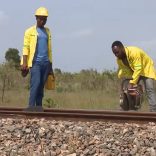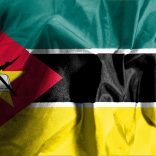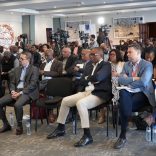Mozambique repays over US$42 million to China in three months
Debt costing Mozambique US$80 million in AfDB loans annually

The Country Manager for the African Development Bank (AfDB) in Mozambique told Lusa on Wednesday that the country is losing up to US$80 million a year because of unsustainable public debt.
“It is difficult to define an exact number, but Mozambique could receive at least two or three times the current US$30 to 40 million, perhaps up to US$120 million a year,” Pietro Toigo told Lusa on the sidelines of the AfDB annual meeting in Busan, South Korea.
“In the policy of the bank it is important that we lend in a responsible way, so for countries in a situation of very high indebtedness we can only make donations and not loans, and being only donations, we can only donate a smaller amount,” Toigo explained. “As long as Mozambique’s debt is too high, the AfDB cannot make loans, it can only make donations.”
He added that the money that Mozambique no longer receives has to do with the need to maintain security in the Bank’s financing and rejected any idea of punishment, explaining that the AfDB’s major objective was that debt sustainability issues were solved, so that it was possible for the country to access sustainable financing for development in the future.
Asked about the unsustainable debt definition parameters, the AfDB resident representative in Maputo responded that they are the same ones followed by the multilateral financial institutions, such as the International Monetary Fund (IMF).
“It is not just a number; there are several criteria such as the percentage of exports or taxes on debt. We generally use the IMF criteria, but still, as an African bank, we want to discuss various perspectives towards budgetary management. But the framework is the same for all multilateral institutions, ” said Toigo, who leads a team of 15 technicians in Maputo.
Regarding the relationship between the AfDB and the Mozambican government since the disclosure of the hidden debt scandal, Toigo explained that the institutional relationship had not changed, unlike the banking relationship.
“In the sense of the relationship between the Bank and the objectives of supporting development, the relationship has not changed. The problem is more one of banking, because we are a triple A rated bank and we have to defend our shareholder and our capital by limiting loans with high credit risk,” he said.
“As long as the debt sustainability problem is not resolved, the amount of resources we can lend to Mozambique is a little more limited than it would be” if the debt were lower, he said.
“Potentially, in a situation of sustainable debt, we will be able to invest up to one billion dollars in Mozambique, combining donations and loans, but today the amount is still much lower,” he concluded, referring to the US$600 million loan for ongoing projects, which could, together with donations, go up to one billion in the next few years.
The AfDB governors’ meeting is taking place this week in South Korea and has as its official theme ‘Accelerating the Industrialisation of Africa’, and takes place in a context of weak growth on the continent and excessive government debt.
The bank’s annual meetings are one of the largest economic meetings focusing on Africa, bringing together heads of state, benchmark public and private sector shareholders, the governors of the 80 central banks that are AfDB shareholders, together with academics and development partners.












Leave a Reply
Be the First to Comment!
You must be logged in to post a comment.
You must be logged in to post a comment.